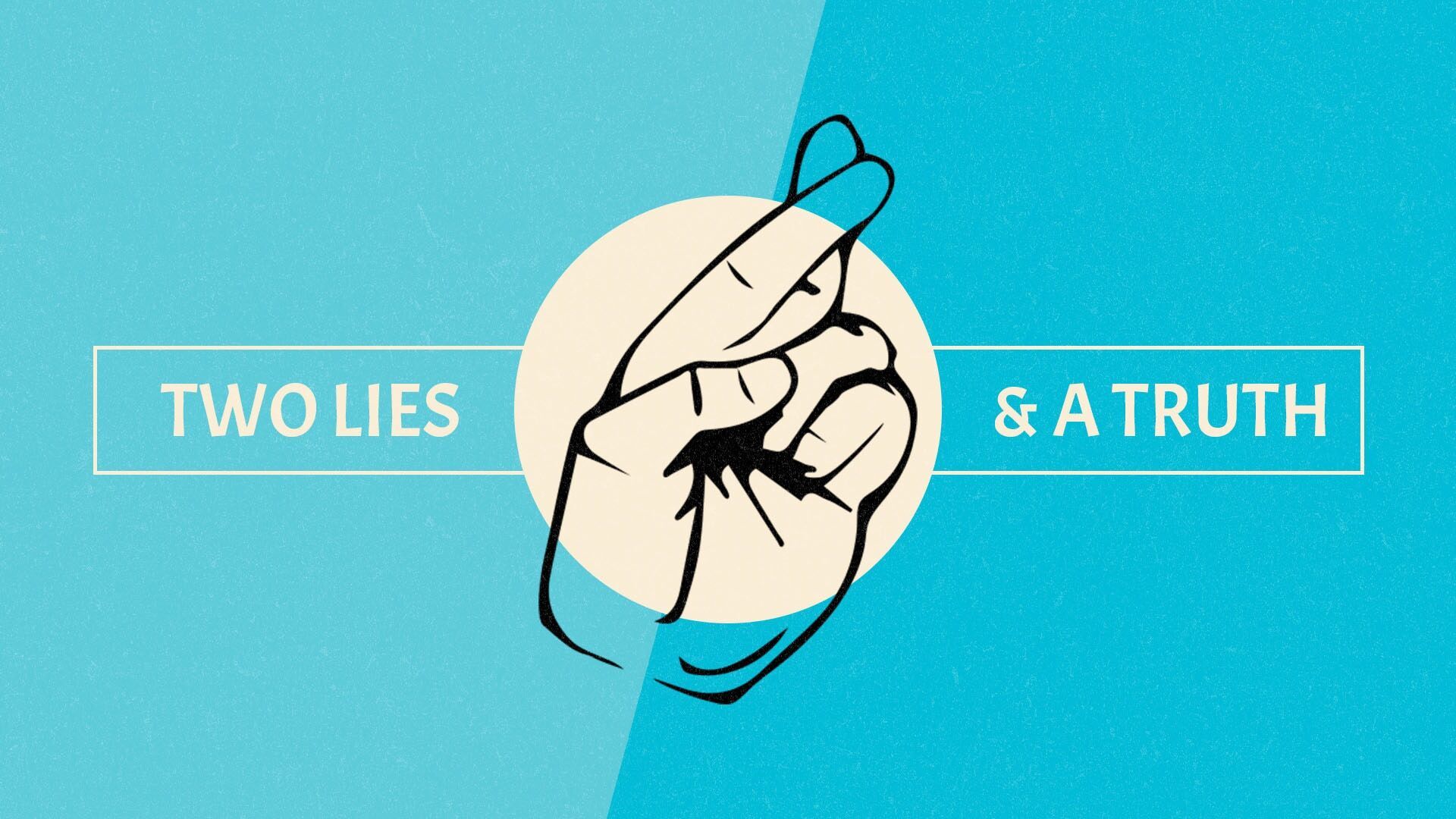The Type of Person God Uses

Big Idea: Embracing generational differences in the church can turn potential conflicts into strengths, fostering unity under Christ's leadership.
I realized early in our marriage that my wife and I are quite different. You would think that I might have realized that before our marriage, but for whatever reason, I didn’t. In that first year of marriage, I discovered that I was a morning person, and my wife was a night hawk. My brain shut down right around the time that hers started working. What’s more, my idea of a good time was to retreat from the world and barricade myself in my house. Her idea of a good time was to throw open the doors and invite the neighborhood in. I enjoyed planning, while my wife preferred spontaneity. I believed in punctuality; we’ll just call my wife a free spirit.
I realized that our differences could either lead to conflict in our marriage or become our greatest strength. I realized after a while that I didn’t really want to be married to someone like me. I realized that embracing our differences could lead to exciting new adventures for us both. Our differences created opportunities for both of us to mature, and for her strengths to compensate for my weaknesses. We could choose selfishness and defensiveness, or we could choose contribution and caring. The moments of greatest delight in our marriage have been those moments when we have enjoyed the differences between us.
The greatest strength of any group of people is going to be the synergy that comes from being different. Paul talks about this in Ephesians 4, which I’d like you to read with me: "As a prisoner for the Lord, then, I urge you to live a life worthy of the calling you have received. Be completely humble and gentle; be patient, bearing with one another in love. Make every effort to keep the unity of the Spirit through the bond of peace. There is one body and one Spirit, just as you were called to one hope when you were called; one Lord, one faith, one baptism; one God and Father of all, who is over all and through all and in all."
Paul is saying that there is an underlying, fundamental unity within the church. We don’t have to manufacture it; it was given by the Spirit. It’s simply our job to keep it. All believers belong to one body; all are united under one head, Jesus Christ himself. We are all one body, but there’s a potential issue because verse 7 states, "But to each of us, grace has been given as Christ distributed it." In spite of the unity of the church, Christ has given us all different roles to play.
It doesn't take long within the church to realize what I experienced in my marriage: we have significant differences between us. There are differences in giftedness. According to Colossians 3:11, there are differences in nationality, race, education level, social standing, wealth, gender, religion, and power. These differences are going to be a challenge at times. That’s why Paul says in Ephesians 4:3, "Make every effort to keep the unity of the Spirit." It’s something that’s going to take effort; it requires diligence.
One of our greatest potential strengths as a church is going to be our diversity. One of our greatest potential points of conflict as a church is going to be our diversity. God uses all types of people—people with different gifts, backgrounds, and preferences. One of the things that excites me about Richview is our diversity in age. Few churches can boast the significant age diversity that we embrace. I’ve invited three representatives of different age groups to come up this morning. They don’t know what I’m going to do, but they’ve agreed to sit up here so that we can stare at them for the rest of the service.
As we look at these three people, they’re very different. I'm excited about that. These differences can either create strong synergy in our church or lead to significant conflict. Every week, God has called us to serve these three generations. Our biggest challenge today is to adapt to changing times, so we can be remembered like David, who "served his generation according to the will of God." (Acts 13:36).
If we are going to serve our generation, we're going to have to be in touch with our times. We're going to have to know who we're called to serve. Our model will be the men of Issachar, mentioned in 1 Chronicles 12:32. (1 Chronicles 12:32 NLT) From the tribe of Issachar, there were 200 leaders of the tribe with their relatives. All these men understood the temper of the times and knew the best course for Israel to take. We somehow need to understand the temper of our times in order to know the best course for our church to take.
So let's look at our friends. On my extreme left, we have a builder. A builder is someone who was born between 1920 and 1945. We had a hard time finding someone to admit that they were a builder, but here he is – my friend Albert. In the middle, we have a boomer – Linda Nolan. A boomer is someone who was born between 1946 and 1964. We're not sure when our boomer here was born, but I'm told it was pretty close to 1964, wasn't it? And then, closest to me, we have a buster – my friend Jonathan. A buster is someone who was born between 1965 and 1984. We don't even have the next generation up here – Generation Y or whatever you're going to call them; those aged 15 and under. But these are the three generations that we are called to serve.
Now, aren't you glad we have all three? Some churches lack representation from all generations. Some churches just have one or two. But we have the privilege – the calling – of serving all three generations. But is it going to be easy? Every week, we have all three groups within our church.
Generations and Ministry
We will explore eight areas of church ministry and examine how these three aspects connect with the current landscape. To effectively serve our generation, we must remain attuned to the issues and dynamics of our time.
Let's begin by thinking about the program style of the church.
How is the church going to be structured? Albert and the rest of the builders tend to like formal and structured programs within the church. They like things to be well-planned and carried out well. They like the formality of a program, whether it's a Bible study, prayer meeting, or whatever.
Linda and the boomers, however, are a little different. Linda is not as concerned about programs as she is about relationships. She wants the program style of the church to be relational. Busters will naturally be drawn to events that allow them to relate to others and to find fellowship. It's no accident that churches began to focus on fellowship and koinonia as the busters began to run the church.
But then the busters came along. A buster's approach to programs can be summed up in one word: spontaneous. Busters perform best when they can be spontaneous and creative, rather than in overly structured or formal settings. Don't tie them down with a formal program and expect it never to change; allow them the freedom to experiment.
This concerns their focus. Our builders mainly focus on programs. Our boomers tend to focus on people – usually their friends. Our busters tend to focus on community-building: an authentic community of people who can be real with each other.
This next part is huge. Because when it comes to ministry, these three people are motivated in completely different ways. If you want to motivate a builder, appeal to their sense of duty. You can motivate a builder by using guilt. You can appeal to their sense of duty. Some of them lived through the Depression. They served in a world war. They are motivated by duty.
When it comes to boomers, though, motivation is found through fulfillment. If you want to motivate a boomer, tell them that Christ's commands lead to true fulfillment. A buster is completely different. Do you know how to motivate a buster? Through a challenge. A buster will buy into a cause. If a buster sees a need, he or she will rise to the challenge. The motivation is very different for these three groups of people.
Now we come to the Sunday morning worship service.
What do these three groups of people think about worship?
For someone like Albert, their idea of appropriate worship is a service filled with reverence. They have the conviction that worship is to be conducted with solemnity and seriousness. Someone like Linda doesn't necessarily mind reverence, but for her worship should include dialogue and interaction. There should be some give and take in worship. A boomer won't mind if there's some talking back and forth between the audience and the platform. I told you that the key word for a builder's style of worship is reverence. Do you know what a buster prefers? Energy. A true buster thrives in environments that offer both volume and intensity.
Let's talk about something minor, like music. We'll generalize here. What type of music does a builder prefer? Hymns. What type of music does a boomer prefer? Generally, a blend. And do I need to ask what type of music a buster prefers? Contemporary praise. No wonder there are sometimes tensions between the generations!
And then we come to sermons. This is where my job gets tough. What type of sermon does a builder prefer? Expositional. Start at chapter one, verse one, and when you're done move on to chapter one, verse two. What type of sermon does a boomer prefer? How-to sermons. They want to know how to grow spiritually, how to be a better parent, how to deal with depression. And then we come to the buster. It's important with the buster to address the issues. A church that only reads the Bible without addressing difficult topics like homosexuality won't earn respect. Is premarital sex wrong? How does a Christian respond to poverty or war? The issues are important to them.
On Sunday mornings, we have different preferences for worship, music, and sermons. We'll cover two more areas of difference.
Let's look at missions.
Builders support missions. It's a sacred trust for them. But boomers tend not to be as focused on missions as on missionaries. Don't talk about missions in abstract terms to a boomer. Talk about the Kerrs in Japan. Talk about the Fosters in Angola. Busters are going to be more interested in projects and known causes. They will respond if you mention the percentage of people lacking a Bible translation in that region. They will sign up for a short-term missions project. All three have an interest in missions, but that interest is unlocked in different ways.
Finally, let's look at the sayings of these three groups.
Do you know what builders love to say? "Are you sure?" They're cautious; they don't always like change or bold new initiatives. What's a boomer going to say? "Just do it." Sometimes there has been enough talk, and you just need to get to the action. The buster is sitting there watching all this go on. Do you know what a buster loves to say? "Whatever." Can you see how different we are?
Responding to the Differences
Now let me ask you a question: which generation are we called to serve? All of them. This is our calling; this is our challenge. Which type of person is the type of person God uses? God uses busters; God uses boomers; God uses builders. We need them all here. Let's thank them for coming this morning. Our diversity in age is going to be one of our greatest struggles—and one of our greatest opportunities. When you have a piece of fabric, the rips usually take place at the seams. But if sewn properly, the seams can be the strongest part of the garment.
Let's talk about builders this morning – those who are age 55 and up. I take my hat off to you this morning. We need you! Many of you have sacrificed for years to build the church. It's because of you that we even have Richview Baptist Church and other churches around it. We are deeply grateful for your past and ongoing contributions. We are committed to continue serving you. We don't want you to go anywhere. Let's show our appreciation to those builders who have shown themselves faithful. It's our job to continue what you've started. We don't want to do anything new. We want to recapture your passion. We want to affirm you for everything good that you've accomplished. I thank you for being who you are, and we need you in the future. We will never displace you; you are vital to our future.
Let's talk about the boomers. Boomers, you're the missing generation in many churches. Many between the ages of 35 and 55 have left the church. I'm so glad that you didn't. You began to lead this process of change in society and in the church. We need you. We value what you have done, and what you're continuing to do. We need you in the future.
Now let's talk about the busters. One thing I'm learning is that busters don't play games. I've been in some churches with no busters, and boy, are you ever missed! I value your commitment to authenticity. I applaud the commitment you show to whatever cause you believe in. We need you. People sometimes say that you are the church of the future, but I disagree. You are the church of today; we need you, and we appreciate you.
The differences between the generations can be the greatest source of tension in the church. Or they can become our greatest strength. Imagine if Richview was a church that could model to other churches what it was like to be unified in the midst of incredible diversity in the Body. What's it going to take? Three things.
One: Appreciate the differences.
I think an important first step is to recognize and appreciate how different other people are from us. Life would get pretty boring if everyone else was just like me. When we begin to understand how we're different, and see our differences as strengths rather than weaknesses, our attitude changes. Each generation makes a unique contribution that the other generations can't make. And together we find wholeness and maturity. Like the men of Issachar, we need to understand the temper of our times in order to know the best course for our church to take.
Second: Remember what's worth fighting for.
Do you remember the list I just gave you of the differences between builders, boomers, and busters? You can summarize that whole list with one word: preferences. Do you know what preferences are? Just preferences. Are preferences worth dying for? Yes, but the one who has to die is you. The area of preferences is an area in which we need to die to self. (Philippians 2:3) Do nothing out of selfish ambition or vain conceit, but in humility consider others better than yourselves. (Philippians 2:4) Each of you should look not only to your own interests, but also to the interests of others. We will fight for God's Word; we will battle for his commands. These are worth fighting for. But we'll never battle over preferences. When conflicts arise, we should determine whether the issue is a timeless principle from Scripture or just a personal preference. Remember GST – goals, strategy, and tactics. Goals never change – the goal of glorifying God and leading people to maturity in Christ. Strategies never change – exposition, prayer, evangelism, fellowship. But tactics always change. "Methods are many, principles are few; methods always change, principles never do."
Third, and most importantly, get to know and love someone from another generation.
Dann Spader writes, "People usually do not trust those they do not know." The flip side of that is that people cannot help but trust those whom they know and love. I would challenge busters here – adopt a builder! Visit with them. Get to know them. Talk to them as they come into the church. Don't even tell them what you're doing – just pick one and begin to really love them. The same with builders. Adopt a boomer or a buster. Find out what makes them tick. Meet with them; pray for them. Love them.
Every Monday morning, I meet with a builder. Our friendship has grown. We are seeing Paul's words come true. (Colossians 3:11) Here there is no Greek or Jew, circumcised or uncircumcised, barbarian, Scythian, slave or free, but Christ is all, and in all. Because what type of person does God use? God uses willing people of all ages to serve their generation, just as David did.





